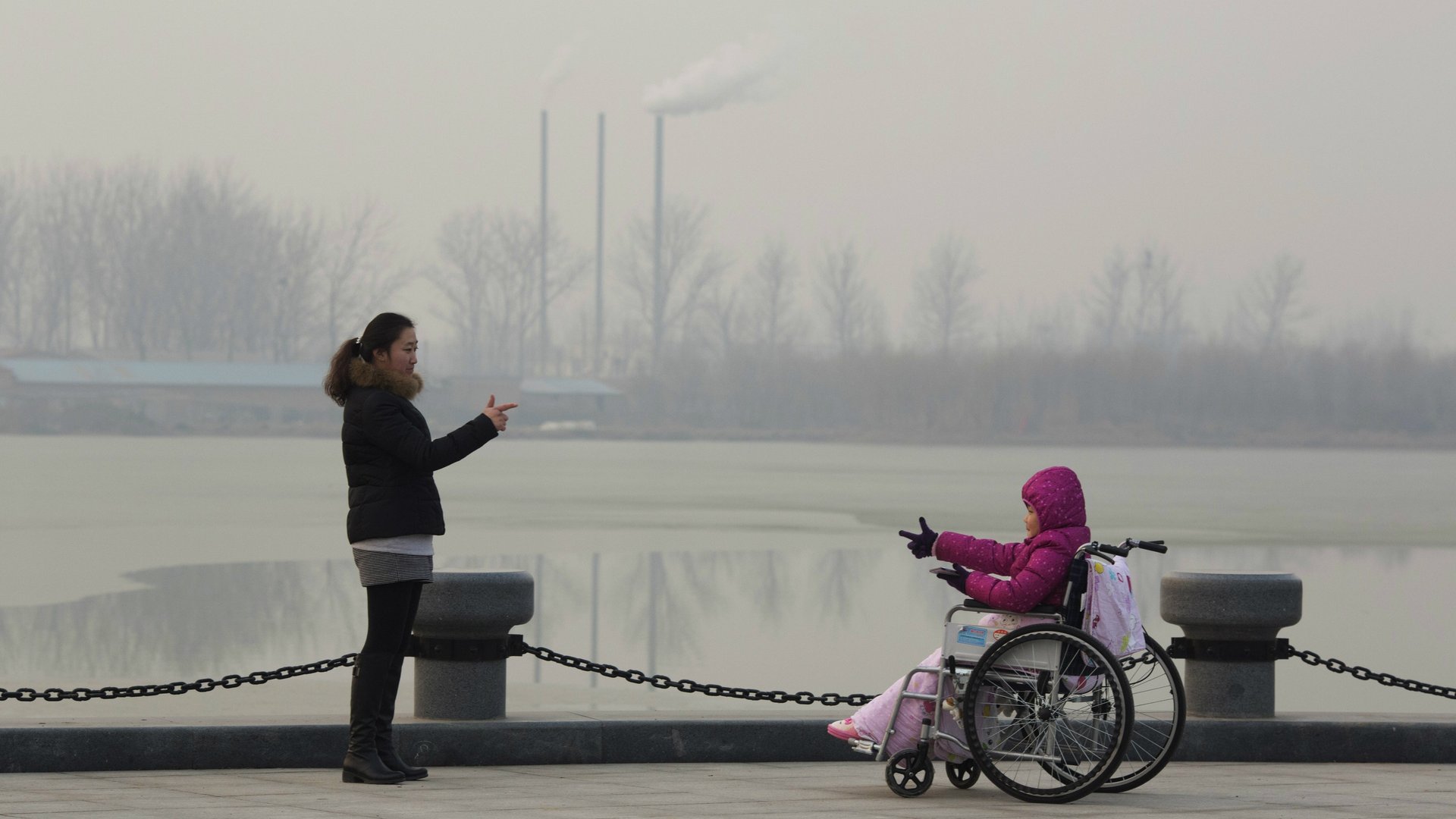China’s emissions-reduction plan will more than pay for itself, according to a new MIT model
China, the world’s most prolific emitter of greenhouse gases, is working on ways to curb its impact on the global climate. Given that as much as 70% of the nation’s energy comes from coal-fired plants, reducing carbon dioxide emissions will require massive investment into new energy technologies. The good news for China: the economic gains for the country might vastly outweigh that effort’s initial costs.


China, the world’s most prolific emitter of greenhouse gases, is working on ways to curb its impact on the global climate. Given that as much as 70% of the nation’s energy comes from coal-fired plants, reducing carbon dioxide emissions will require massive investment into new energy technologies. The good news for China: the economic gains for the country might vastly outweigh that effort’s initial costs.
A new study published this week (April 23) in the journal Nature Climate Change shows that when taking into account the healthcare costs saved through reducing pollution, ushering major change to the way China produces energy will more than pay for itself. All told, having fewer deaths from air pollution will wind up saving China upwards of $339 billion by 2030. That’s enough money for the nation to meet its climate goals four times over, the study states.
The MIT team behind the study was comprised of economists and atmospheric scientists, and it took both groups to design a new model by which to measure the potential for health savings in the context of more progressive climate policies. They considered four different scenarios and ran them through their model. One scenario considered what would happen by 2030 if China changes nothing. The other three considered carbon dioxide-emission reductions of 3%, 4%, and 5% per year through 2030. The model calculated how many premature deaths per year the country could avoid under each scenario, then quantified in dollars how much that would represent in savings.
Under the 3%, 4%, and 5% plans, China could avoid 36,000, 94,000, and 160,000 pollution-related deaths, and save about $138.4 billion, $339.5 billion, and $534.8 billion in related healthcare costs, respectively.
In joining the 2015 Paris Agreement on climate change, China has pledged to abide by the 4% scenario, as part of the broader international effort to stop global temperatures from rising more than 2°C above pre-industrial levels. If it hits that goal, the country will save $464.5 billion in healthcare costs against an estimated $125 billion price tag to enact cleaner environmental policies. That will leave China in the green by about $339.5 billion, the study estimates.
“This is really a sustainability story,” said study co-author Noelle Eckley Selin in a statement. “We have all these policy goals for a transition toward a more sustainable society. Mitigating air pollution, a leading cause of death, is one of them, and avoiding dangerous climate change is another.”
The researchers noted that such savings might not be available to other economically powerful nations because many already have reduced their dependence on coal power. Because of China’s reliance on coal is so heavy, theres more to gain in healthcare savings by finding cleaner alternatives.